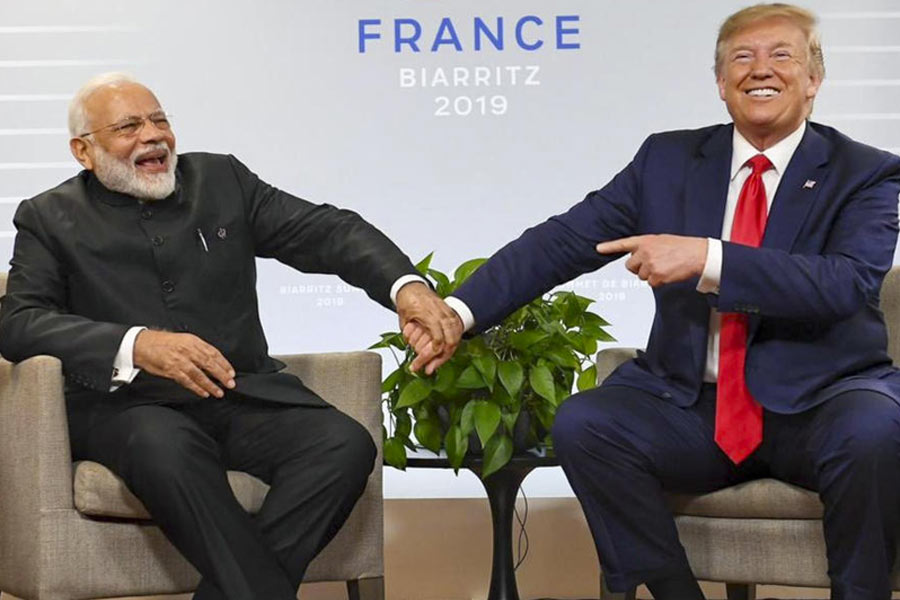The president of the United States of America, Donald Trump, has, on record, praised the negotiating skills of the Indian prime minister, Narendra Modi. But it appears that by declining to attend the ASEAN Summit in person, Mr Modi has let go of a window of opportunity to double down on national interests even as India is engaged in trade deal talks with the US. Mr Modi’s evasive tactic has, ironically, been praised in some quarters. It is being argued that this is demonstrative of the Indian prime minister’s refusal to, in a manner of speaking, acquiesce to the optics orchestrated by
Mr Trump. But the truth is that a meeting between the two heads of State, if it were to take place in Kuala Lumpur, could have offered a golden opportunity for the Indian prime minister to signal his affirmation for robust bargaining. Mr Trump’s need for a big-ticket trade deal cannot be overstated. For all his talk of success in negotiations,
Mr Trump — thanks to his brazen imperiousness and the weaponising of tariffs — is not exactly being seen as a reliable partner by the international fraternity. His decision to slap Canada with an additional 10% tariff over a television advertisement aired by Ontario, featuring Ronald Reagan denouncing tariffs, is a case in point. Moreover, for a man who claims to have stopped many wars, a resolution to the Russia-Ukraine war continues to elude the American president: even the peace in the Middle East and Gaza is fragile. A trade deal with India will definitely help Mr Trump shore up his credibility as a force of stability. It is this need that New Delhi must capitalise on. The prime minister must have personally led the effort to exploit this chink in Mr Trump’s armour.
A successful meeting with Mr Trump would have also led to the accumulation of domestic political capital for Mr Modi. Mr Trump’s imposition of tariffs on India as well as his repeated claims — New Delhi’s denials notwithstanding — of resolving the India-Pakistan military standoff in May have led to criticism of the Indian prime minister failing to stand up to Mr Trump’s bullying. The ASEAN Summit would have given
Mr Modi the chance to pour water on these criticisms by holding his ground against Mr Trump. Both Mr Modi and Mr Trump are sensitive about not upsetting their strong domestic support bases. But statesmanship has to look beyond immediate domestic compulsions for long-term benefits. Inexplicably, Mr Modi has let this opportunity go by.










